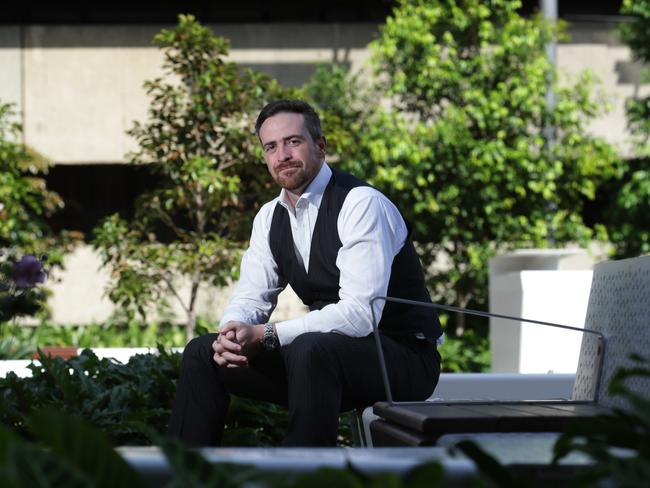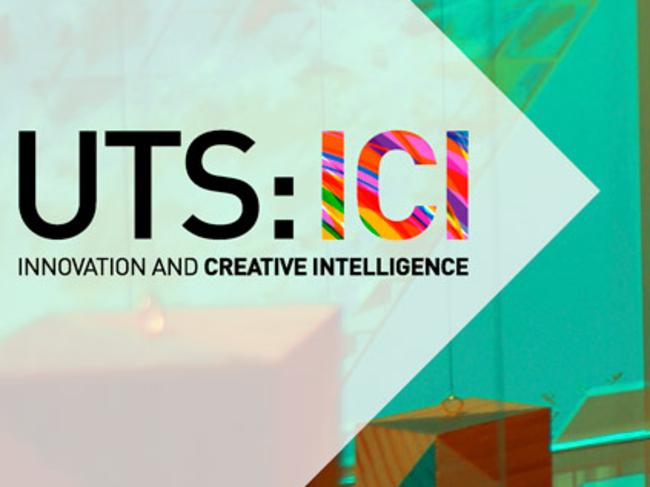Vague university degrees everybody wants
IT’S vague and full of buzzwords, but students are flocking to this new type of degree. Are they wasting their time?

Careers
Don't miss out on the headlines from Careers. Followed categories will be added to My News.
THEY’RE the new university courses promising students the skills they’ll need for the “jobs of the future”, just don’t ask a current employer to define them.
A range of vague-sounding, buzzword-filled degree titles will be among the top courses school leavers will be hoping to qualify for when they receive their ATAR, HSC, OP, or whichever other acronym score they’ve been slaving to achieve over the past two years.
One of the those which will be available for the first time to 2017 university-starters is the University of Technology Sydney’s Bachelor of Technology and Innovation, the latest course in the university’s creative intelligence and innovation study areas.
The “transdisciplinary” degree may sound like a combination of timely buzzwords, but according to UTS vice chancellor Attila Brungs, it’s all about “building what we believe are the attributes needed when it comes to future jobs”.
“(The course is) about how do you do sense making, systems thinking, social intelligence, problem solving, these are all attributes that we believe the future of learning will be right across our courses ... by listening to where we see great trends growing and perceived demand, we’ve realised, we need a truly transdisciplinary degree that focuses on this,” Prof Brungs told news.com.au.
The Bachelor of Creative Intelligence and Innovation was introduced in 2012 as a double degree option that had to be completed alongside another undergraduate course.
It’s become so popular that this year only one in every 18 students of the 3600 who applied were offered one its 200 places.
In 2015 a masters was introduced, and next year students will be able to apply for a stand-alone, three-year, undergraduate degree in creative intelligence and innovation.
Prof Brungs described the course as a generalist degree (like Arts) with a tech focus.
He said graduates from the course could expect career outcomes across a wide range of areas like finance, tourism, broad service industries and the creative industries.
But even he concedes, as was the case with other once-innovative courses before it, there will likely be some sceptical employers who don’t quite understand what the qualification means.

Queensland University of Technology graduate Tamika Wood was met with a similar reaction when she explained to employers, and basically anyone, what exactly her degree meant.
Fresh out of high school, the creative teenager with ambitions hedged in the flagging books and magazines industry enrolled in QUT’s Creative Industries course in 2007 because she “really didn’t know what I wanted to do”.
“The interdisciplinary major let me pick and choose, but I also figured that getting a degree full stop was the only way I’d get a job,” she told news.com.au.
After a year, she decided that the majors she’d chosen “weren’t much better than an arts degree”, and enrolled in a more focused degree — a bachelor of science.
But after a year in that course, the now 27-year-old felt she had a better understanding of what her original interdisciplinary course could offer, and how to take advantage of it.
She eventually graduated with the Creative Industries degree.
“I added a business minor, applied for courses that gave me ‘real world’ experience and graduated,” she said.
“I found it really hard to find a job at first — I couldn’t compete with the ‘actual’ business students for marketing jobs, and it was impossible to get into any sort of creative career so I worked as a travel agent instead.
“Eventually I got a graduate diploma in education and moved to London to teach.”
Ms Wood said at that stage, the only real benefit she got from her degree was “being able to say I had one”.
“But over time I learned how to show potential employers the benefit of coming from an interdisciplinary background,” she said.
“I think that it gives you a more diverse skill set that allows you to approach situations in different ways.”
After four years of working out what to do with her qualification, Ms Wood landed an entry level job at Google and from there worked her way up to a career in publishing she’s “always wanted”.
“I think I definitely got more out of the CI degree when I was older and had a more mature approach to choosing my majors,” she said.
“It’s so easy to go in straight out of school and pick up the areas that you like without any idea of where they will work together in the long run.”
Ms Wood said others in her cohort have gone on to “amazing creative careers” working for companies like Vice and WGSN, while others landed in award-winning video game start-ups and media agencies.
“It might take a bit longer than more standard degrees, but it feels like we have the diverse background to fit new roles popping up in industries like media and tech.”

Prof Brungs said graduates from UTS’s BCII course will be equipped with the skills that future employers need, but haven’t realised it yet.
And like Ms Wood, he says some students themselves may not fully appreciate the skills they’re gaining just yet either.
“Sophisticated workplaces are asking for this, they might not know it yet but when they’re getting it, they’re going, my god, that’s what we’ve wanted,” he said.
Unlike any of the university’s other faculties, Prof Brungs said he had businesses “lining up” to take on innovation interns.
“We get industry involved all the way through,” he said.
“(Students) have to do internships and actually part of that helps education but part of it also exposes industry to the skills of these students.
“Once employers see the skills that they have, understand what they can do, the big picture problem solving and the sense making, they’re sold.
“It’s helping industry understand the value and I think we’ll find a lot of our graduates are employed before they finish.”

But do employers really want students with a broad skill base? Or is a more specific skills-focused course the way to go?
The choice is clearly an individual one, but according to the Australian Chamber of Commerce and Industry’s employment and training director Jenny Lambert, too many students are falling into generalist courses without asking these key questions.
Ms Lambert believes for school leavers, too much emphasis is placed on course advice, and not enough on job outcomes.
“Although many students don’t have an idea of what job they’re going to do in the end, it’s very important that they’re considering not just what they’re interested in, but where it’s likely to lead to,” she said.
“I think that the main advice, to think about not just the course but what the jobs are beyond the course, and there’s not enough of that.”
Mr Lambert said businesses were “very encouraging” of universities looking at innovative ways that they can improve graduate outcomes because “there’s clearly an issue with those dropping off quite significantly”.
Pointing to trade apprenticeships, which have a 90 per cent employment rate immediately after qualifications compared to universities courses which produce 68 per cent of immediately employed graduates, Ms Lambert said it was important to remember university is not the only option.
“I think there’s definitely a lot of parental and school pressure to say that university is the preferred path way, but research shows that for many people a vocational training path way will be equally, if not better, from a job outcomes point of view,” she said.
Ms Lambert said generalist degrees suited some students, so long as they were thinking about the “whole picture”.
“We’ve got to encourage students to look at all of their possibilities and the main focus has to be what type of work they’re trying to do,” she said.
“With some of these general degrees, it’s very challenging to find a job afterwards without having a good idea. Unfortunately when people are young it’s hard for them to get their minds around that, and really, the last six months of a three year degree is not the time to start thinking about it (as has been the case in earlier iterations of generalist degrees). They should start thinking about it a lot earlier.”
Originally published as Vague university degrees everybody wants



